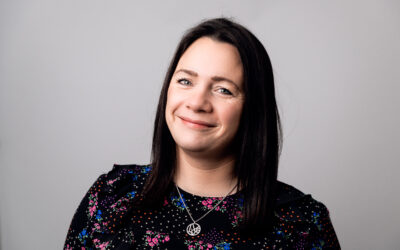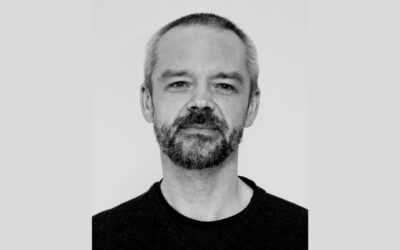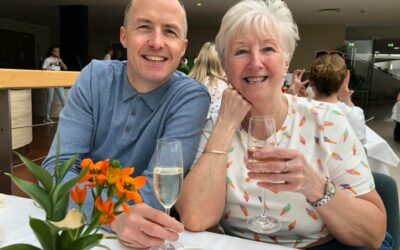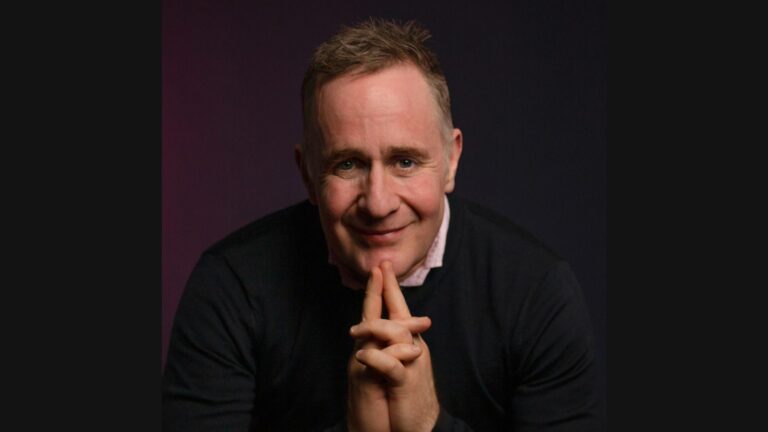John Quinton Barber is the founder and CEO of specialist communications consultancy Social.
Marking its 10th anniversary next year, the agency has grown from being a PR agency to offering a range of specialist communications services. One of its divisions includes Social Tech Communications, which picked up the Tech PR Campaign of the Year at this year’s Prolific North Tech Awards.
Having left school with one O Level, John has had an inspiring career journey. As CEO at Social, the group now has offices across Manchester, Leeds, Liverpool and London with around 45 staff.
He shared the lessons he has learnt in his career with us.
Which single daily habit or practice could you not do without?
I try and foster gratitude and I journal every day as a way of focussing on what is good in my life and in the world. Every evening I write down three things that I’ve been grateful for during the day. In the morning I place my journal under my bed and so I have to kneel down every day and retrieve it. And while I am it, I pray and give thanks to God. Gratitude journaling has helped me immensely during these last few turbulent years.
What’s been your luckiest break?
Landing my first real job at the Millennium Commission and being exposed to all things ‘New Labour’ in the mid 90’s. The job was advertised in the Guardian, and I was encouraged to go for it by the then head of press – with a nod that I probably won’t get the job, but the process ‘would be a good experience’. I got the job and started life as a press officer on what was then probably one of the most interesting press jobs around. Exposing me to everyone from Tony Blair, Mo Mowlam and Michael Heseltine through to the Royal Family and working at the late Diana, Princess of Wales’ funeral.
What’s your best failure?
Failing all but one of my O Levels. That was my biggest wakeup call and I still believe to this day that the experience eventually made me who I am today. It was 1980’s Thatcher’s Britain and unemployment was sky high. So I took matters into my own hands and hitch hiked across the UK to bootleg bands and flog the tapes at a second hand record shop in Huddersfield. After that I set up a gardening business. Before rediscovering education.
What is the best investment you’ve ever made, either financial or time?
Running a business is bloody tough – so twice a year I escape to Northumberland to the brilliant Northern Bootcamp for a week. It’s an oasis for both body and mind. It forces me to focus on my overall health – so I am a better husband, dad and work colleague.
Which book would you recommend others to read and why?
Gratitude Works! A 21 Day Program for Creating Emotional Prosperity by Robert Emmons. It’s a fantastic read by one of the world’s leading authorities on all things gratitude. It helps with both theory and practice and I recommend it as a must read for anyone who needs to boost to their wellbeing. I swear that the world would be a better place if we all practiced gratitude!
What one piece of advice would you give your 21-year-old self?
Success isn’t measured in pound notes.
Who or what has had the single biggest influence on your working life?
A lady called Angela Salt who is now the CEO of the Girl Guides. Angela was head of communications at the Millennium Commission and was my first real boss. A brilliant person and a tough cookie at the same time. Angela demanded high quality work and was not afraid of feeding back when standards hadn’t been met. She is someone that believed in me and gave me the confidence to make decisions and taught me that failure is only good – if you learn from it. I owe Angela a lot.
Tell us something about you that would surprise people.
I may come across as confident and successful having set up and scaled a growing business to over £3 million. But I am like most people – I have an imposter syndrome that often challenges every fibre of my being. Every single day.
How will the COVID crisis change work for the better?
Apart from a much needed and stronger focus on wellbeing at work, I genuinely think that it is still too early to say. Yes more hybrid working is a net positive of COVID – but I believe that most businesses, including ours, are still trying to work it all out. Someone told me in March 2020 that we won’t figure everything out for at least five years. It was hard to hear back then, so I dismissed it. But now I believe them.
What does success look like to you?
The starting point for success for me is a happy and healthy mind, body and spirit. Everything beyond that is bonus.













